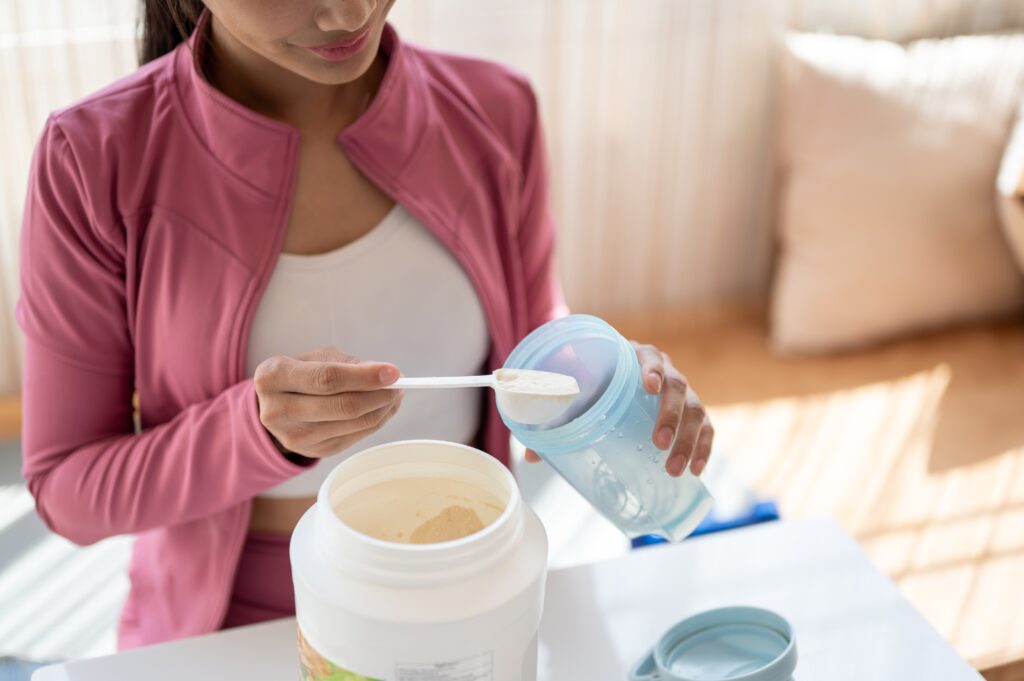Is creatine safe for people with IBS?
- Supplements
Do you wonder whether creatine is safe for people with IBS?
This article will explain the safety of one of the most extensively studied dietary supplements in the world – creatine.
We will discuss what creatine is, its role in our body, why it is so popular and whether it is safe or even beneficial for IBS sufferers.

What is creatine?
Creatine is a natural compound that we get mainly from red meat and seafood. Many people also take it as a supplement (1, 2).
Our bodies can also make creatine in the liver, kidneys, and brain from two amino acids called arginine and glycine (1, 2).
Approximately 95% of creatine in the body is concentrated in the muscles (2). It plays an important role in producing energy as it helps to restore the main energy molecule in the body, called ATP – adenosine triphosphate (1, 2).
Creatine as a supplement – is it safe and beneficial to take?
Creatine ranks as one of the best-studied supplements and is proven safe (2).
Extensive research shows beneficial effects in various areas:
- Improved cognition in older adults (1)
- Improved exercise performance (3)
- Increases muscle mass when paired with resistance training (4)
- Contributes to bone health in postmenopausal women (5)
Doses of creatine in the research ranged from 5 g/day to 30 g/day.
Is creatine safe for people with IBS?
Unfortunately, there is no research on creatine and IBS specifically.
One small study on football players showed that taking 10 g of creatine per day increased the incidence of diarrhoea, when compared to 5 g of creatine or placebo (6).
But being a small study, we can’t be overly confident about the results.
How we use creatine in IBS clients
As there is no research to suggest creatine is beneficial for IBS symptoms, we do not recommend it is used for this as such.
However, there is some evidence around mental function and muscle mass benefits. For those clients who wish to explore this we recommend a starting dose of 3-5g first.
Most of our clients seem to tolerate this amount without symptoms, gaining the benefits of this supplement.
Note that creatine supplements can also contain other high FODMAP ingredients. This is usually sweeteners, such as sorbitol or xylitol, which can cause IBS symptoms.
To learn which sweeteners are low FODMAP, read: Which Sweeteners Are Low FODMAP? Dietitian Advice For IBS
Creatine is flavourless and easily added to any food (even a cup of tea!). So we would advise you to just get the pure creatine powder.
Does taking creatine cause adverse effects?
No!
There have even been placebo-controlled studies, which showed there was no significant difference between the group who were taking creatine and those who took the placebo (7, 8).
There have been concerns over the potential impact of creatine on the kidneys. But research has shown that there is no negative effect (7, 8).
Summary
Creatine is generally safe for healthy individuals with no serious adverse effects when used at recommended doses, which is up to 30 g per day.
It’s widely used to enhance muscle strength and performance in sports and exercise, but the effects of creatine are beyond the use in sport.
Evidence for creatine in IBS is limited; therefore, we suggest to try with lower dose and to choose the product without FODMAPs.
Written by Barbara Lešnik, RD, MSc, reviewed by Kirsten Jackson, Consultant Dietitian BSc Hons, RD, PG Cert